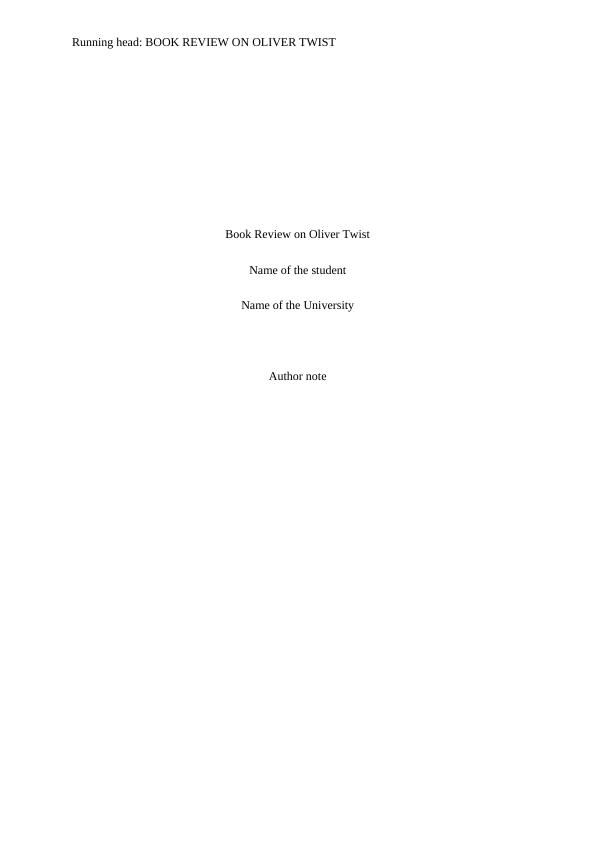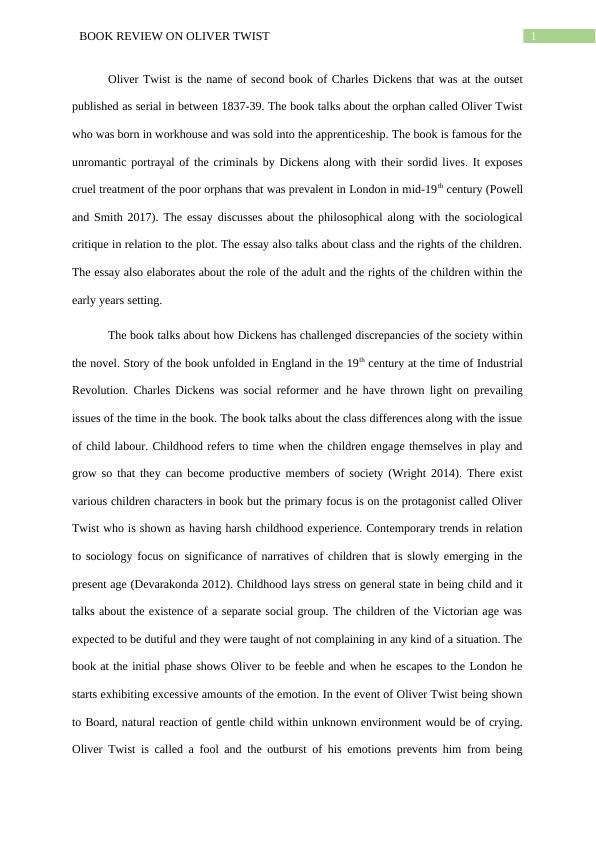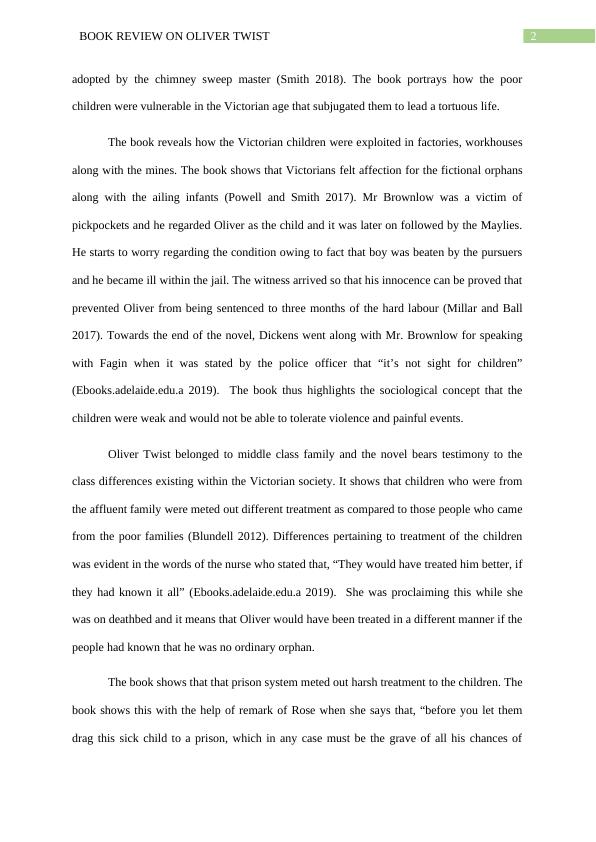Book Review on Oliver Twist
7 Pages2027 Words66 Views
Added on 2023-04-21
About This Document
Oliver Twist is the name of second book of Charles Dickens that was at the outset published as serial in between 1837-39. The book talks about the orphan called Oliver Twist who was born in workhouse and was sold into the apprenticeship. The book is famous for the unromantic portrayal of the criminals by Dickens along with their sordid lives. It exposes cruel treatment of the poor orphans that was prevalent in London in mid-19 th century (Powell and Smith 2017). The essay discusses about the philosophical along with the sociological critique in relation to the plot. The essay also talks about class and the rights of the children. The essay also elaborates about the role of the adult and the rights of the children within the early years setting.
Book Review on Oliver Twist
Added on 2023-04-21
ShareRelated Documents
End of preview
Want to access all the pages? Upload your documents or become a member.
Annotated Bibliography Article 2022
|3
|667
|18
Family Poverty in Oliver Twist by Charles Dickens
|7
|1774
|315



